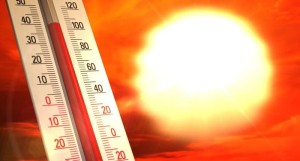Heat, Humidity and Livestock
Humans aren’t the only ones suffering from the heat and drought this summer. Farm animals are feeling the heat, too.
Be cognizant of both the temperature and the relative humidity. Humidity in our area?! Yes, even in our desert region. This morning the relative humidity reading showed 46% humidity at the Tri Cities Airport in Pasco, WA. Both temperature and relative humidity will fluctuate during the day and night.
When your animal becomes too hot the body sends more blood flow to the skin to assist in cooling. Unfortunately, this causes the animal’s brain and internal organs to receive too little oxygen. Furthermore, heatstroke causes your animal to sweat excessively, and this loss of electrolytes and fluid only adds to the dire circumstances. Even worse, if your animal is not sweating at all when he or she should be, it is an urgent sign of heatstroke. High relative humidity reduces the ability of animal to use evaporation to dissipate heat.
Simple guidelines you can follow to reduce the impacts of high temperatures on animals:
Water: An animals’ water consumption in hot weather conditions will increase 50-100 percent. Be sure they have plenty of fresh, clean water available at all times. Like humans, animals need to stay hydrated. Place it in a shady location if possible.
Shade: Make sure they have shade so they can get out of the direct sunlight. Never lock them in a shelter because it will be hot inside. However, as the sun moves throughout the day the shade will move around the outside of the shelter allowing your animal to move with the shade. A heavily canopied tree can also provide shade.
Food: Your animal needs access to plenty of food. Quality hay and pasture both provide energy and help your animal regulate his own body temperature. Place feeders in a shady location if possible.
Handling: Handling animals in high heat is dangerous for both you and your animal. The combination of stress and high heat can kill an animal. If you must handle an animal, do it early in the morning or late in the evening when it is somewhat cooler and move the animal slowly.

